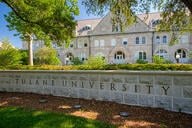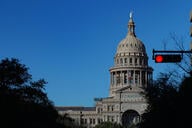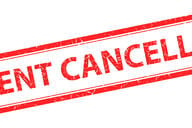You have /5 articles left.
Sign up for a free account or log in.
A federal appeals court has given a strong endorsement to the idea that faculty speech rights at public colleges and universities were not constrained by a 2006 Supreme Court ruling that limited the rights of some public employees.
The 2006 ruling, Garcetti v. Ceballos, concerned the Los Angeles district attorney's office. Despite that, some courts have been applying the ruling to faculty disputes at public universities -- while others have not. The new ruling – by the U.S. Court of Appeals for the Ninth Circuit – comes in a three-judge panel’s revised opinion on the case of David Demers, a tenured professor at Washington State University who says he was retaliated against with negative performance reviews for writings that criticized the administration.
The appeals court did not rule on the merits of the case, and as it did in its first look at the Demers suit, it said that his free speech wasn’t limited by the Garcetti ruling. But the language in the new ruling was quite strong – the kind of language many faculty advocates have been looking for.
The appeals court acknowledged that Garcetti set limits for public employees, but said there was no question that those limits should not apply in higher education.
“Garcetti left open the possibility of an exception,” the appeals court said. “In response to a concern expressed by Justice Souter in dissent, the court reserved the question whether its holding applied to ‘speech related to scholarship or teaching.’ Justice Souter had expressed concern about the potential breadth of the court’s rationale, writing, ‘I have to hope that today’s majority does not mean to imperil First Amendment protection of academic freedom in public colleges and universities.’ ”
The appeals court added that “Demers presents the kind of case that worried Justice Souter. Under Garcetti, statements made by public employees ‘pursuant to their official duties’ are not protected by the First Amendment. But teaching and academic writing are at the core of official duties of teachers and professors. Such teaching and writing are a special concern of the First Amendment. We conclude that if applied to teaching and academic writing, Garcetti would directly conflict with the important First Amendment values previously articulated by the Supreme Court.”
Further the court noted that the First Amendment, as interpreted in other Supreme Court decisions, applies to faculty speech that may not be strictly scholarship or teaching, but may relate to discussions of college policy. “[P]rotected academic writing is not confined to scholarship,” the appeals court said. “Much academic writing is, of course, scholarship. But academics, in the course of their academic duties, also write memoranda, reports, and other documents addressed to such things as a budget, curriculum, departmental structure and faculty hiring.”
Robert O’Neil, former president of and professor of law at the University of Virginia, and an expert on faculty free speech issues, said via email that the latest decision from the appeals court added to the view he shares that Garcetti should not be applied to higher education.
The new decision has “a level of certainty and conviction -- a slightly sharper edge, if you will -- which further narrows adverse inferences from Garcetti,” he said.




